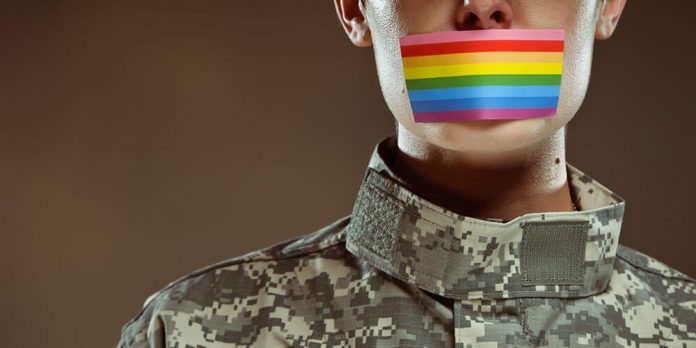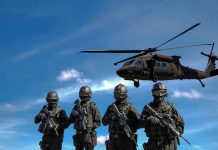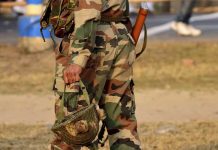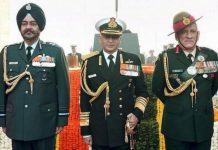This article is written by Vedant Saxena, from Rajiv Gandhi National University of Law, Punjab. It discusses the reasons lent out in denying homosexuals admission into the Indian Armed Forces.
Table of Contents
Introduction
September 6, 2018, was a memorable day in Indian history, for it was the day when Section 377 of the IPC was declared unconstitutional, in so far as it criminalized homosexual acts between two consenting adults. While delivering the verdict, the Supreme Court had said that Section 377 was a marred blot upon a homosexual person’s right to equality, guaranteed under Article 14 of the constitution. It also said that sexual orientation could well be considered as an element of privacy, and thus Section 377 was an invasion of the right to privacy of homosexuals. Privacy had been declared as an intrinsic element of the right to life and personal liberty under Article 21 of the constitution, in Justice K.S.Puttaswamy(Retd) vs. Union Of India.
On January 10, 2019, General Rawat, Chief of the Indian Army, was asked questions regarding the impact of the Supreme Court’s verdict on the Indian army. His words echoed sentiments of the top brass in armies across the world. He said that although the army is not above the Supreme Court, a person enrolling in it would not be entitled to the same privileges. The presence of homosexuals may bolster homophobic tensions amongst soldiers, thereby impacting the army’s unity.
Legal lacuna
Article 14 of the constitution guarantees to all citizens equality before the law, and equal protection of the laws within the territory of India. Any law inconsistent with Part 3 of the constitution is bound to be declared void. If this Article were to be read per se, the laws barring the admission of homosexuals in the armed forces would be unconstitutional. However, Article 14 permits differentiation based on reasonable classification. In D.S. Nakara vs. Union of India, the Supreme Court held that Article 14 forbids class legislation but permits reasonable classification. The classification must satisfy the twin test- firstly, the differentiation between persons or things that are grouped together from those that are left out of the group must be founded on an intelligible differentia, and secondly, the differential must have a rational nexus with the object sought to be achieved by the statute in question. For instance, in Dhirendra Pandua v. State of Orissa, it was declared that the differentiation between people suffering from leprosy and others was valid, for leprosy was a contagious disease and therefore the classification was based on reasonable grounds. With regards to the admission of homosexuals, Article 14 may be read along with Article 33.
Article 33 is a unique feature of the Constitution, which empowers the Parliament to make laws in contravention of Part 3 for the members of the armed forces, as long as it is necessary for the proper discharge of their functions and maintenance of discipline among them. It could be argued that with the members of the armed forces having to live in close quarters and serve shoulder to shoulder, the presence of homosexuals may generate homophobic tensions, thereby endangering the peace and unity of the members. Although this Section itself allows laws to be made in contravention to fundamental rights, it could also be employed as a reasonable classification, thereby barring the application of Article 14 to the admission of homosexuals in the armed forces. Major General Nilendra Kumar, former Army Judge Advocate General (JAG), said, “The Army Act is a separate act altogether and homosexuality is an offence under Section 46, which deals with unbecoming conduct…The Supreme Court did not have the occasion to examine Section 46 of the Army Act or similar Sections in the Air Force and Navy Acts. Therefore, that law is very much on the book and has not been tempered or amended by the Supreme Court.”
Grounds for the prohibition of admission of homosexuals in the Indian Armed Forces
Morality
The primary reason why General Rawat is against the admission of homosexuals in the armed forces is the degradation of morality. He believed that the other members may not feel comfortable living and serving with homosexuals. “We are not modern…we are not westernised…we shall see what happens twenty years later”. According to the RAND study, it is unfair to presume that the presence of homosexuals will necessarily degrade the army’s atmosphere. For instance, in Watkins vs. United States Army, the plaintiff was sought to be expelled on the ground of homosexuality. However, the court failed to find conclusive evidence in support of the statement that his homosexuality had had a degrading effect upon unit performance, morale or discipline. Therefore, he was retained in the armed forces. Similarly, in Pruitt vs. Cheney, the plaintiff, who had been dismissed on account of her homosexuality, was able to prove that her presence in the army had not in any way impacted the others. Rather, she had garnered a great deal of respect and admiration from her entire circuit. Therefore, in light of such instances, it would be unjust to bar the admission of a homosexual solely on the basis of his sexual orientation.
Command
Another reason to disallow the admission of homosexuals in the armed forces is the integrity of rank and command. The army men may refuse to adhere to the commands of a homosexual. This is the very reason why the question of whether women should be admitted in combat roles has greatly been debated upon, for the illiterate jawans may refuse to obey a woman officer’s commands. However, there have been significant advancements in recent times. Ever since former president Pranab Mukherjee’s announcement in February 2016 that women will finally be allowed to take up combat roles in all sections of the Indian armed forces, a number of women have shattered the concept of male supremacy by achieving significant milestones. Similarly, Operation Desert Storm, a military operation by the United States organized to expel occupying Iraqi forces from Kuwait, was successfully headed by an African-American without any issues of sexual or racial supremacy. Therefore, it could be concluded that denying homosexuals the right to admission would be benefiting the Indian army of competent prospects.
Foreign exercises
Friendly relations with foreign states is also a reason administered to deny homosexuals admission in the armed forces. Even if the local army is content with the presence of homosexuals, other states’ armies may not. Ever since the culmination of the second world war, most states have continuously been striving to promote harmonious ties with each other. A large number of joint military exercises are conducted each year. Therefore, the presence of homosexuals may create problems in global deployment and hinder state cooperation. This would mean non-admission based not only on sexual orientation but also colour, gender, etc. However, recent events suggest that many countries are deviating from this concept. For instance, in 2014, 26 countries permitted homosexuals to serve openly in their armed forces.
Common showers
In Pruitt vs. Cheney, the defendant’s contentions included that the presence of homosexuals may make other people uncomfortable on account of their anomalous sexual orientation. There may be significant insecurity generated in sharing common showers. However, in Able vs. USA, the court, while negating this issue, held:
“to accommodate the privacy of heterosexuals presumably means, for example, to keep their naked bodies safe in the showers from the stares of homosexuals who wish to peek at naked bodies, but they might do so quite as readily when their orientation is a secret as when it is open. The only difference will be that heterosexuals will not know which of their service-mates are homosexuals and heterosexuals will have reason to have a generalized suspicion of everyone in the showers, hardly a circumstance likely to increase ‘cohesion’.”
Security
The presence of homosexuals may also cause them to get mocked and bullied by the other members, thereby furthering the gap between them. People may blackmail them by threatening to make the fact of their sexual orientation public. However, recent studies show that homosexuals do not pose a greater security risk than heterosexuals.
Considerable advancements in other countries
In 2011, the then US president Barack Obama finally put an end to the DADT (Don’t Ask, Don’t Tell) policy, instituted by the Clinton Administration on February 28, 1994. According to DADT, a homosexual person could not be compelled to reveal his sexual orientation to the military personnel. However, if he were to reveal it out of his own violation, he was to be discharged except when a service member’s conduct was “for the purpose of avoiding or terminating military service” or when it “would not be in the best interest of the armed forces”. With its termination, homosexuals would openly and proudly be able to serve in the armed forces as they are, without the fear of being expelled. In a statement, Obama said: “As of today, patriotic Americans in uniform will no longer have to lie about who they are in order to serve the country they love.”
On January 12, 2000, the ban placed on homosexuals from serving the UK armed forces was finally lifted. This move was greatly welcomed by people, particularly of the homosexuals’ community. According to Colonel Mark Abraham of the British Army: “A lot of gay and lesbian soldiers who were in the army before the ban was lifted reported that a percentage of their efforts was spent looking over their shoulder and ensuring they weren’t going to be caught. That percentage of time can now be devoted to work and their home life, so actually they are more effective than they were before.”
In February 2014, the Hague Centre for Strategic Studies generated a global ranking concerning the inclusion of the members of the homosexual community in the armed forces. More than 100 countries made it into the rankings. India found its name in the latter half of the list, recording a paltry score of 34 out of 100. New Zealand’s military, found to be the most gay-friendly in the world, scored 100. Therefore according to these stats, the Indian Armed Forces are among the least gay-friendly in the world at present.
Conclusion
The members of the homosexual community have been viewed as abnormal entities by many since time immemorial, particularly in India. Homosexuals have been victims of prejudice across all walks of life since time immemorial. In Spite of being a majority view, the Indian Constitution is guided by its own text rather than the perceptions of society. An orientation which was once treated as a curse was recognised as an indispensable part of our society by the Supreme Court. The Indian Army needs to take into account the difference between conventional outlook and unfounded prejudice. Under the garb of ‘conservatism’, the Indian Army is depriving homosexuals of their basic rights. Moreover, denying the admission of homosexuals in totality may mean benefiting the armed forces of competent soldiers and commanders. There have been countless examples of people of depressed communities taking the lead and becoming an inspiration for future generations.
While enlisting recruits, the Indian Army follows an intense and effective code in order to regulate their services. Homosexuals must also be made subject to the same rigours. However, denying them the very chance to prove their worth is clearly unjust.
The change should come from within. The Indian army’s aim of modernization should not only be restricted to weapons but should also extend to its outlook and perceptions. Only then would it be one step closer to becoming a true superpower.
References
- https://jilsblognujs.wordpress.com/2020/05/25/indian-army-and-homosexual-soldiers/#_ftn12
- https://law.justia.com/cases/federal/district-courts/FSupp/880/968/1408197/
- https://www.gao.gov/assets/160/151963.pdf
- https://hcss.nl/news/lgbt_military_index_1
- https://www.bbc.com/news/world-us-canada-14981082
- http://www.iosrjournals.org/iosr-jhss/papers/Vol20-issue2/Version-2/C020221215.pdf
LawSikho has created a telegram group for exchanging legal knowledge, referrals and various opportunities. You can click on this link and join:
 Serato DJ Crack 2025Serato DJ PRO Crack
Serato DJ Crack 2025Serato DJ PRO Crack











 Allow notifications
Allow notifications


